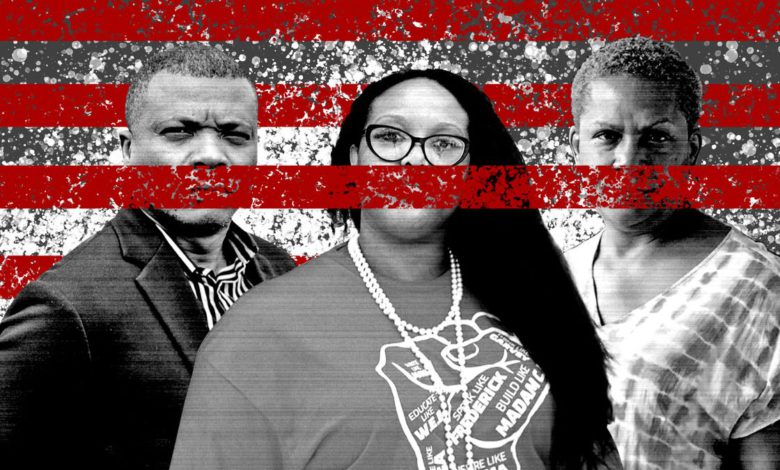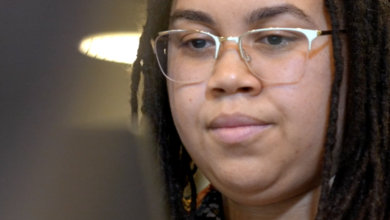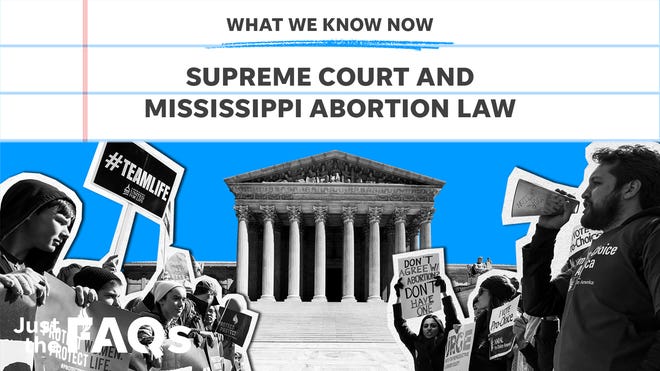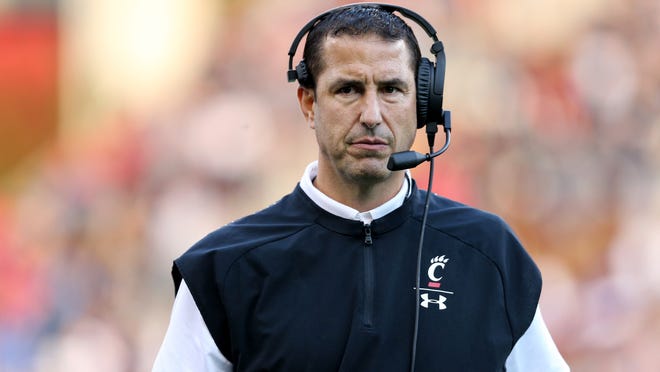
The agency opened another disciplinary investigation into Rhule’s GoFundMe page earlier this month and Rhule closed down donations and removed mentions of the EEOC shortly after. But her story caught the attention of the National Association for the Advancement of Colored People.
Gary Bledsoe, the NAACP chair in Texas, said the EEOC’s handling of Rhule’s case betrays the agency’s mission.
“What’s occurring here is pretty shocking,” Bledsoe told USA TODAY. “You can’t put the fox in charge of the henhouse.”
Another Black investigator, Dawn West-Lewis, left the EEOC in 2015. She told USA TODAY that her managers in Texas considered outspoken Black women aggressive but white women assertive. They punished her for things as trivial as parking in the wrong part of the lot while letting others park wherever they wanted. She said she was also disciplined for working on cases after hours, on her own time.
“You’re talking about an agency charged with investigating discrimination in the workplace while committing more violations than you can ever imagine,” West-Lewis said. “There has been a pattern and practice of systemic discriminatory practices in that office for decades.”

Richard Reinhart started working for the EEOC in Dallas last summer as a clerk. He said he immediately noticed internal tumult after he saw the responses to Rhule’s emails, which were copied to the whole staff.
“Our responsibility here is to combat discrimination,” said Reinhart, an openly gay Army veteran who served in Iraq. “How can we be told we can't back Black Lives Matter?”
Shortly after, Reinhart began butting heads with his supervisor about instructions he found confusing and cases he felt weren’t properly investigated, according to internal records obtained by USA TODAY. He said the issues came to a head when management forced him to work in the office during the COVID pandemic. Reinhart complained that he would likely contract and spread the virus.
When Reinhart reached out to coworkers for help with work, he said they turned him away.
“Essentially, I have been given a gag order,” Reinhart wrote to the top lawyers at the agency’s headquarters in March. “My poor treatment is the tip of the iceberg in the Dallas District Office.”
He filed a formal complaint with the agency earlier this month, alleging he felt singled out and mistreated. Less than two weeks later, Reinhart was fired via Zoom meeting.
In his termination letter, McCallister, the district director, said supervisors had grown concerned about Reinhart’s “performance and conduct-related matters.” She said he had been repeatedly disrespectful to his supervisor on a phone call – he had once hung up on her – and failed to follow instructions, including failing to use the correct documents when communicating with companies.
“I believe that you are unsuited for Federal service,” McCallister wrote in the letter.
Reinhart was stunned. “I was expecting the EEOC to hold high standards for the public,” he said. “What I’ve seen is devastating.”
EEOC officials declined to comment on the specifics of Reinhart’s case, citing privacy laws. But Ebel, the director of field programs, said in a statement, “No individuals from the Dallas district have been terminated after filing a complaint of discrimination.”
For years, EEOC employees like Reinhart and Rhule have complained about unfair treatment within the Dallas district office.
Nazer said 20 internal complaints of discrimination have been formally filed by employees in the district since 2011. Nationwide, 39 EEOC employees filed internal complaints each year on average between 2015 and 2019, according to agency statistics. About a third of them were race-related.
Management told one investigator, Hannah Nutt, who had recently given birth, that she couldn’t keep breastmilk in the office refrigerator, Nutt told USA TODAY. She left the agency in late 2017.
That same year, Leonard, an investigator currently employed in Dallas, asked for time off to seek treatment for his major depressive disorder and provided medical documents to his supervisors. His condition was so severe he had scheduled electroshock therapy.
“I would like to work up until treatments begin and then complete my treatments and return back to work,” he wrote to a disability program manager. “I know this has been difficult for everyone involved, but this is the treatment of last resort and it’s necessary. I’ve tried everything else I can try.”
The manager approved the leave, email and text exchanges show.
When he woke up after the first round of treatment, Leonard said, he didn't know where he was or what had happened. At home, he didn’t recognize his dogs. He didn’t remember having a job. It took weeks to recover before he could work again.
That’s when Leonard learned the EEOC wanted to fire him for going AWOL. His bosses decided to instead suspend him for three months without pay.
Leonard appealed the discipline. An administrative judge later found that his supervisors approved his medical leave, then unfairly disciplined him, according to internal documents.
In an initial decision, the judge ordered the EEOC to give Leonard backpay and wrote that he proved the agency had discriminated against him for his disability and that the “agency’s action was the result of unlawful retaliation.”
Leonard said the case is still pending because the EEOC filed for a board to review the judge’s decision. Four years later, he still feels betrayed by the episode.
“Anyone who requires accommodations has been run off,” Leonard told USA TODAY. “We would never allow another company to do what the EEOC has done to me.”

The internal tumult in Texas may reflect more widespread issues within the agency.
In a federal lawsuit filed in March, Malcolm Medley, a Black senior executive director at EEOC’s Washington headquarters, said he was demoted after receiving a poor work evaluation based on the opinion of a supervisor who racially discriminated against him.
The EEOC denied those allegations and said Medley’s demotion was “the result of his unacceptable performance of his duties,” according to court records. The case remains open.
The lawsuit alleges that Medley’s boss, Nick Inzeo, prevented him from executing his job’s main duties, including excluding him from meetings, emails and other work discussions.
Inzeo allegedly yelled at Medley during a telephone meeting in March 2020 for reaching out to the information technology department to discuss work-from-home and training solutions in the face of the upcoming pandemic.
Disturbed by Inzeo’s behavior, an EEOC employee on the call, Kessela Reis, sent an email to 16 people at the meeting to address what she had heard.
“As a black woman to have to witness a white man unrestrained and indignant yell at a black man for attempting to do his job by simply participating in a meeting marked as 'brainstorming’ is intolerable, disrespectful, and outrageous,” Reis, who reported to Medley, wrote in the email.
Another employee agreed that Inzeo “irresponsibly thrashed” Medley and “made him look foolish in front of the staff,” according to court records.
Several investigators in Texas also said that Inzeo, who was in charge of overseeing their internal complaints from headquarters, repeatedly turned his back on them and sided with the local supervisors. Inzeo retired from the agency in October after a 45-year career. Ebel, the director of programs, took his place.
In an interview with USA TODAY, Inzeo said the Department of Justice is handling the suit on behalf of the agency. He denied any discriminatory or untoward conduct, adding that he championed Medley through the hiring ranks to the D.C. office.
“Most people who were on the call didn’t believe there was any yelling involved,” Inzeo said. “It was a situation where people were on a conference call and it’s difficult to interject.”
When asked about Black workers in general at EEOC, Inzeo said he was unaware of any pattern of discrimination.
“EEOC hires a diverse workforce, I’m certainly not aware of any patterns of discrimination,’ he said. “Had I been I would have done something about it.”
Anita Mazumdar Chambers, Medley’s attorney, said she doesn’t believe her client’s experience is an isolated problem.
“We have talked to other people who also confirmed that it is more widespread,” she said. “Even with the supervisor Nick Inzeo, that he has treated African Americans more poorly and that there is this really negative culture at the agency, which is kind of ironic given the agency’s purpose.”
Brett Murphy, Javonte Anderson and Nick Penzenstadler are reporters on the USA TODAY investigations team. Contact Brett at [email protected], @brettMmurphy, by Signal at 508-523-5195; Javonte at [email protected], @JavonteA, by Signal at 312-919-0360; and Nick at [email protected], @npenzenstadler, by Signal at 720-507-5273.
Published
Updated
Source link








